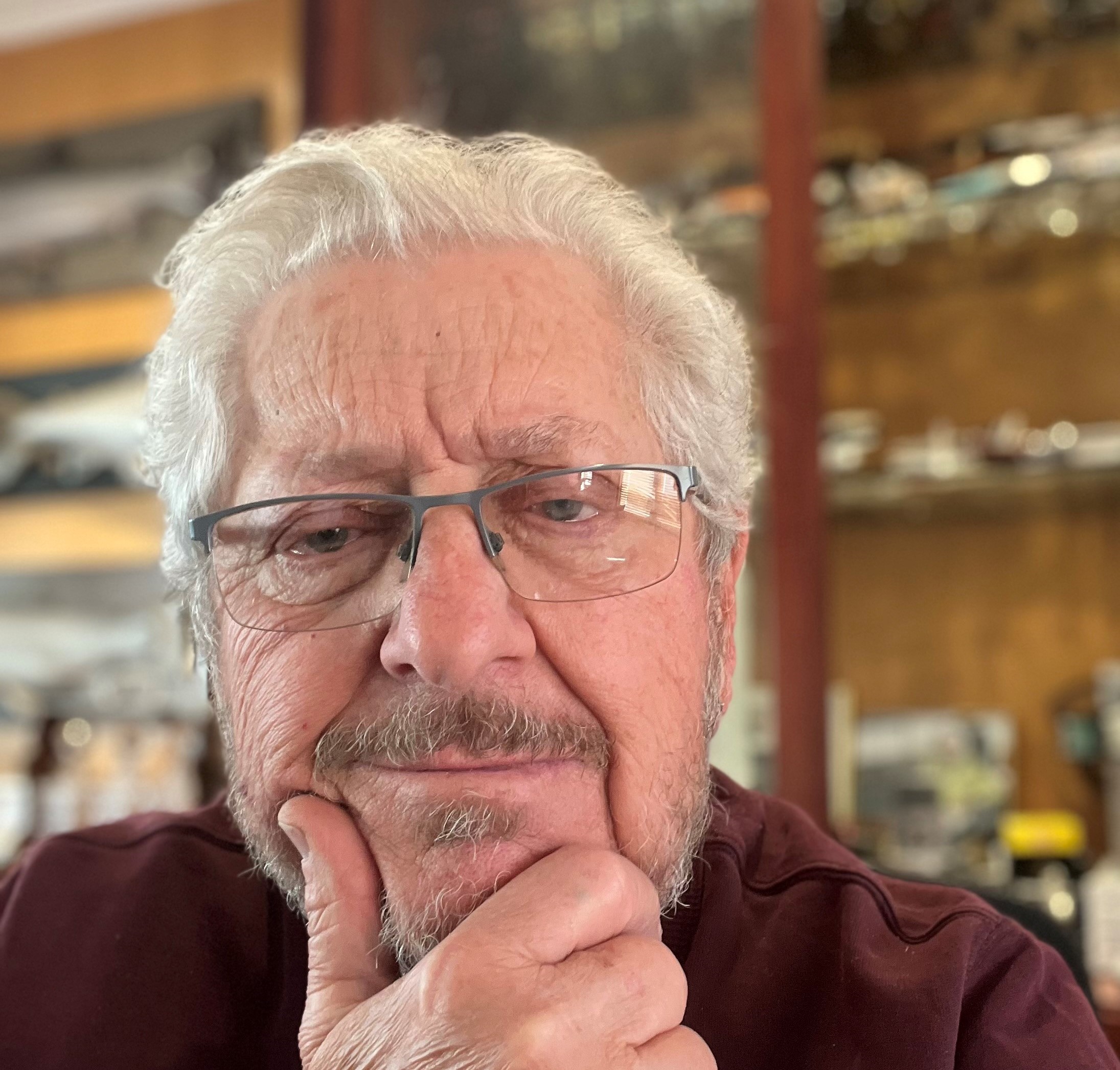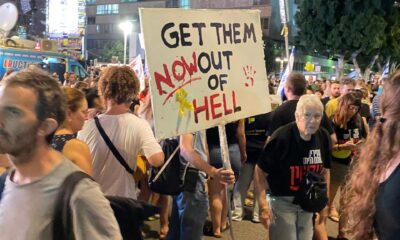
OpEds

Power and protest – a tale of two democracies
Comparisons they say, are odious, and they frequently are, but sometimes they cannot be helped, albeit subconsciously.
We compare all the time. It’s a human condition, since we could never make any distinction if we couldn’t compare, and while it may be unfair, I couldn’t help making a comparison between Israel and South Africa, both nominally democracies, when it comes to the issue of protest.
The right to peaceful protest is one of the foundations of democracy, and for the past eight months in Israel, there have been daily protests against the judicial reforms sought by the governing coalition. These have at times rallied up to 250 000 people. There have been counter protests, but by and large, though protesters have sought to disrupt normal daily life by blocking highways and the like, as far as I’m aware, there have been minimal acts of violence, damage to property, and heaven forbid, loss of life.
The measure of industrial action is usually expressed in workdays lost, a function of the numbers who are on strike, and the length of time that the strike lasts. The first figure says something about the solidarity or common purpose of those striking/protesting, and the second speaks to the strength of feeling and commitment to their cause. I cannot possibly calculate a figure for the protests in Israel, but it must be many, many millions of protest days.
Now let’s look at the so-called taxi strike in Cape Town – not really a strike in the true sense of the word, but a protest – and a protest triggered by the impoundment of unroadworthy or uninsured vehicles or those where the driver had no license.
The protest lasted five days, and though I don’t have a figure for the numbers involved, assume it was 3 000 people. That gives 15 000 workdays, in which time there were five deaths, incidents of arson, assault, looting, and the mass intimidation of those who wished to go about their normal activities, although not using the taxis. The damage in terms of loss of economic activity and inbound tourists cannot be calculated at this stage.
A similar story can be told when it comes to proper industrial action – that is, employees against their employers, over wages. Here, too, there’s a catalogue of death and destruction, arson, damage to property, assaults, and the like. Probably the most devastating was the security guard strike in 2006, in which an estimated 60 guards who wished to continue work were murdered. The horror of this can barely be comprehended.
What does this say about the two societies, both of whom are, in name at least, democracies, where the right to peaceful protest is fundamental? To my mind, the issue is rooted in respect for the rule of law – the idea that citizens respect and obey the law, since there’s a recognition, first, that the law applies to all people, which of course includes the government itself, and that there’s a moral obligation to obey the law and abide by its requirements even if one doesn’t personally agree with that particular law.
This is arguably the primary requirement of any democracy. There must also be a right to protest, but this doesn’t encompass unlawful behaviour, which is beyond the scope of what’s regarded as tolerable in a free democratic society.
Also important is the notion that even if there were no specific law, every person inherently understands that murder, assault, arson, and the destruction of property cannot be justified in the context of protest action. In spite of this, it’s almost axiomatic that in strike action in the true sense of the term, as well as the regular protests we see from communities protesting about the failure of service delivery, these will be accompanied by unlawful and criminal acts.
One of the first things those observing the strike or protest action will consider is the rightness or otherwise of the cause of the protest. This judgement of the legitimacy of the demand is a subjective and a tricky notion, heavily clouded by one’s own perspective of the cause of the protest.
In Israel, the protesters are of the view that the protest is necessary since the amendments to the law will have the effect of diminishing the principle of the separation of powers between the government and the judicial system. This, too, is a fundamental foundation of democracy.
Many will sympathise with citizens who see this as an attack on democracy. It’s easy to point out many historical examples of what can happen in a society where this separation has been done away with. Many will give the subsequent acts of protest moral approval, but it’s doubtful if this could survive should violence and destruction of property follow in its wake.
In South Africa, if one looks at industrial action – and we must remember that the right to withdraw labour is another pillar of democracy – then relatively low wages and unpleasant working conditions, as say in mining and heavy industry, can give a legitimacy to strike action.
Similarly, the lack of service delivery to thousands of our fellow South Africans cannot be denied, and the failures of government in this regard are many. We all recognise this and are alive to the lack of housing, sanitation, clean water, electricity, and the like, and surely see this as a legitimate cause of protest. Yet in cases of both industrial action and civil protest, as soon as matters turn violent, whatever sympathy there might have been is surely lost. Once this takes place, the end no longer justifies the means.
Nevertheless, the fact remains that by any standard, sustained protest in Israel dwarves protest action in South Africa. In Israel, there hasn’t been a descent into violence, arson, or fatalities, as has happened in South Africa.
The obvious question that follows is why the difference?
A complete and satisfactory explanation is complex and multifactorial. It’s doubtful if there is any one theory that explains it – it’s certainly beyond the writer. But perhaps, in the broadest sense, the answer lies in respect for the law and a recognition of its legitimacy, as well as the obligation of every citizen in a democratic society to abide by it.
To my mind, this respect for the law and its rule, whatever the cause may be, lies at the heart of all our current woes. Every day, the headlines trumpet crime, corruption, and the failure of the government and its various arms such as the police service to cope with this.
Our own heritage and belief system is firmly rooted in the idea of law and the obligation to comply with it. It’s in our DNA, and until this enters the DNA of every South African, I don’t believe that our current trajectory will be reversed.
Consciously, or unconsciously, those who choose to leave this country do so in answer to the question of whether or not they should live in a society where there’s no respect for the law.
May Hashem grant that this situation will change for the better, and that we can build a democratic society founded on justice and respect for the rule of law.
- With more than 45 years of experience, Andrew Levy is recognised as an expert commentator and advisor on employment and labour legislation.










